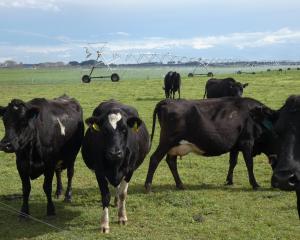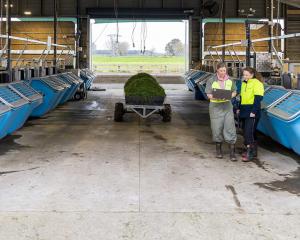
DairyNZ has called on the Government to partner with the dairy farmers it represents to achieve better outcomes, invest more in research and development and stop overloading farmers with too many regulations.
A list of 10 recommendations was given to the Government last week, drawn from a DairyNZ survey of 425 dairy farmers.
More than half the farmers surveyed said changing Government regulations were causing them stress.
About the same percentage of farmers said the perception of dairy farmers by the public and in media kept them up at night.
Nearly 70% of farmers felt there was not enough support for farmers dealing with mental health issues.
On a positive note, 70% of farmers surveyed had a farm environment plan — a tool farmers use to identify and manage environmental risks by adopting good farming practices.
DairyNZ chief executive Tim Mackle said it was critical the Government worked more closely with farmers to support investment in research and development so farmers could continue working to reduce their environmental footprint while maintaining profitability.
The survey showed farmers were making on-farm changes to improve their environmental management and their workplaces, but felt under pressure from constant regulatory changes, Dr Mackle said.
“We want to see more focus on ensuring regulations are fair, practical and don’t overburden farmers with too many different requirements.’’
Dairy was New Zealand’s leading export sector, employed 50,000 New Zealanders and was forecast to contribute more than $40billion to the economy this year, he said.
“Dairy farmers are operating in a complex environment and managing a lot of challenges.’’
About half of farmers reported being short-staffed and 45% did not have the internet service needed to efficiently run farm operations.
In the past two years, the Government has proposed changes to policy on freshwater management, wintering, climate change, biodiversity and vehicle taxes.
These issues might have contributed to 32% of farmers feeling less positive about farming than they did a year ago, despite strong milk prices, Dr Mackle said.
Nearly a fifth of farmers reported they felt more positive about farming than a year ago, he said.
“We know these issues aren’t going to go away overnight, but making these 10 changes would make a real difference to the lives and wellbeing of rural New Zealanders.”
DairyNZ’s 10 recommendations for the Government to improve outcomes for dairy farmers
1. Slow down the speed and scale of regulatory change farmers are facing. Farmers know a shift is needed but there is too much at once, and it’s unco-ordinated. Farmers are feeling overloaded.
2. Help the sector overcome workforce challenges by supporting clear pathways into dairy jobs for local and international workers.
3. Actively partner with farmers and rural communities to support farming communities to drive change behind the farm gate that will lead to better environmental outcomes when it comes to the climate, water quality and biodiversity.
4. Set a clear strategy for research and development. We need a good strategy that is properly resourced to help us tackle the big challenges we face as a country. Science is the solution to many of our challenges.
5. Proudly champion our world-leading split-gas approach internationally. Advocate for split gas and the exploration of alternative metrics which better reflect the warming impact of methane.
6. Invest significantly in improved digital connectivity: our rural communities do not have adequate broadband or mobile coverage. This is an enabler that will unlock multiple benefits for our sector.
7. Give farmers certainty and rule out dissolved inorganic nitrogen: categorically rule out consideration of a national bottom line for dissolved inorganic nitrogen. There are better ways to achieve the freshwater outcomes we all want.
8. Work with us on biosecurity: work with industry to prioritise implementing recommendations from the independent review of M. bovis, address essential system gaps and work with industry to enable a streamlined, efficient model for biosecurity readiness and responses.
9. Remove the ute tax: exempt farmers from the ute tax until low-emission alternatives are readily available in New Zealand that are fit for purpose on farm.
10. Rework the National Policy Statement for Indigenous Biodiversity: in consultation with farmers, ensure the statement will meet our biodiversity objectives, while also working for landowners.













